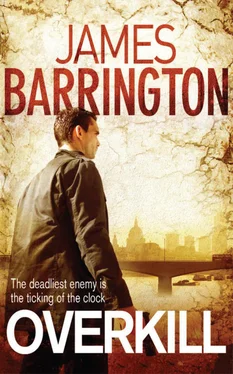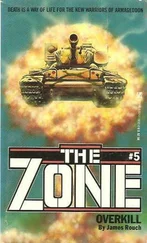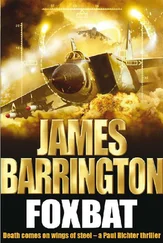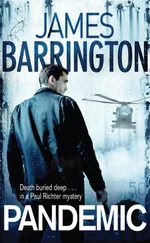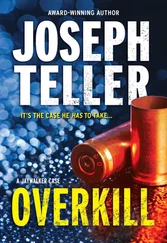‘Get to the point,’ Hicks growled.
‘As I said, nothing seemed to happen on the second, but actually something did. Seismic recordings that we obtained showed an explosion of some kind on that date, in more or less the same position as the map reference given by source RAVEN.’ Hughes looked over at Muldoon. ‘That was when we brought Science and Technology into the loop, because we needed satellite pictures to find out what had happened up on the tundra.’
‘We already had some pictures of the location specified by source RAVEN from a Keyhole satellite, taken in the weeks leading up to the second,’ Muldoon said. ‘The only thing of interest any of these showed was a handful of vehicles close to the map reference. After the event we tinkered with the polar orbit of a Keyhole satellite to optimize coverage. We had some trouble with cloud on the first few passes, but eventually we did get clear shots of the area. All we found was a hole in the ground, and not even a very big hole. Then we ran comparisons with earlier shots of the same area, but that didn’t help much either.
‘We hadn’t got detailed satellite shots of the area – as I said, it’s nowhere near anything of any strategic importance – but the wide-angle pictures we had showed nothing but a small hill in the tundra at the grid reference. And that’s when two other factors entered the equation.’
‘And they were?’ Hicks asked.
‘The fourth piece of information in the RAVEN message,’ Hughes replied, ‘and the seismographic analysis of the explosion.’
‘I thought you said the RAVEN text contained only three bits of data.’
‘No, Director,’ Hughes said, shaking his head decisively. ‘The message contained three specific pieces of information, which we’ve already discussed. It also contained three other phrases that were assessed as non-specific, as each was apparently intended to be a question or, possibly, an incomplete piece of data. One translated as “neutron radiation”, the second was the proper name “Gibraltar” and the last was the word “demonstration”.’
‘OK,’ Hicks said. ‘Give me the rest of it – briefly, please.’
‘Analysis of the seismographic records of the explosion suggested that the weapon was slightly unusual,’ Muldoon said. ‘I won’t attempt to go into the technicalities of it because it’s not my field, and our in-house experts can provide you with chapter and verse if you need it. However, what bothered our people was the fact that it didn’t have the usual characteristics of any known current Russian nuclear weapon, fission or fusion. What it resembled more than anything was a big – a really big – neutron bomb.’
Muldoon fell silent and Hughes spoke again. ‘We discussed the satellite pictures with Science and Technology, and ran some probability checks through Intelligence. John tried to do some checking with his sources in the CIS, but didn’t get anywhere. The thing that bothered us was the “neutron radiation” statement, which tied up with the seismographic analysis. We tried the usual procedures, using sampling systems in bordering countries and on civil aircraft flying anywhere near the site of the explosion, but got nil results. We didn’t understand that, because according to Science and Technology a weapon of the power suggested by the seismograph analysis should certainly have produced significant radiation. As we couldn’t detect any, we wondered if the Russians had managed to develop a high-yield but low-radiation warhead – a kind of super neutron bomb, if you like.’
‘You will be aware, Walter,’ Muldoon interrupted, ‘that the neutron bomb – the Enhanced Radiation Warhead – has an extremely small effective radius, usually under two hundred metres. The physical damage it causes is very limited, but the burst of neutrons it releases is immediately lethal within about five hundred metres, and lethal within hours or days to every living thing inside about a mile. More importantly, the radiation dissipates very rapidly and the area can safely be entered quite soon after detonation.’
Hicks stirred impatiently, but Muldoon pressed on. ‘The neutron bomb was always intended as a defensive weapon, allowing a numerically inferior force to decimate attacking armour. What concerned us was the possibility that the Russians had managed to turn it into a first-strike weapon of some kind, giving it a high yield without the lingering radiation effects of a conventional nuclear device.’
Muldoon paused, and Hicks looked at him. Hicks took the cigar out of his mouth, looked at the glowing end and then back at Muldoon. ‘I get the feeling,’ he said, ‘that we’re coming to the awkward bit.’
Muldoon nodded. ‘We decided that the only way to get detailed photographs and proper radiation measurements was to pull a Blackbird out of retirement at Beale and fly it over the tundra.’
Hicks exhaled sharply and blew a large cloud of tobacco smoke down the table. ‘That was possibly not a wonderfully bright idea, Richard,’ he said. ‘I won’t ask who suggested it, but I would like to know who approved it.’
‘I did,’ Muldoon replied.
Hicks nodded and glanced round the table. ‘Well, the good news is that at least the rest of you have got top cover. The bad news is that if Richard falls into the shit, he’ll have you to land on. What went wrong – I assume something did go wrong?’ Hicks stopped suddenly. ‘That’s it, isn’t it? You flew the fucking Blackbird yesterday morning, didn’t you? That’s why every military radar and radio station in the CIS lit up like a Christmas tree.’
‘Yes, we did,’ Muldoon said. ‘The ’bird carried out the mission, but the crew had a few close calls over Russia – Foxbats, Fulcrums and couple of Foxhounds, I believe – and punched out into Scandinavian airspace with light battle damage. Two, or maybe more, of the fuel cells were punctured, and the crew assessed that they couldn’t make it to any of the tankers, refuel safely and get back to Mildenhall.’
‘Let’s hear the rest of it.’
‘The crew didn’t have many options, but they managed to put the ’bird down safely at a Royal Air Force base – Lossiemouth – in Scotland. They only just made it. The approach was through very heavy weather and they had to be talked-down all the way. The Blackbird actually ran out of fuel on the runway.’
‘Could have been a lot worse,’ Hicks grunted. ‘They could have landed in mainland Europe, which would have meant a lot of diplomatic hassle, at best, or they could have ended up in the North Sea. Goodbye one very expensive aircraft and crew, not to mention goodbye to the films and detector records. So, what’s the problem?’
‘The RAF is the problem – or, rather, the RAF and the British Ministry of Defence. They won’t let us have the aircraft back until we tell them what it was doing over the CIS.’
Sluzhba Vneshney Razvyedki Rossi Headquarters, Yazenevo, Tëplyystan, Moscow
Sokolov knocked on the door and waited. After a few seconds, Lieutenant Nilov opened it and ushered him into the inner office. Modin was sitting at his desk, studying an open file, but stood up and smiled as Sokolov entered the room.
‘Progress, old friend?’ he asked, hopefully.
Sokolov shook his head. ‘No, nothing. I can find nothing in the personnel files that should not be there, and none of the surveillance measures has revealed any deviations from normal behaviour – at least, not so far. If there is a traitor, I don’t think we’re going to find him unless he does something really stupid, like trying to contact an American here in Moscow. All we can do, I think, is watch and wait. And you?’
‘I have had Minister Trushenko here,’ Modin replied. ‘It was not a pleasant interview, for a number of reasons. First, he has ordered that the assembly of the last device be completed no later than Friday next week, and transport is arranged for the next day. He has also brought forward the implementation date of Podstava to the eleventh of next month. If there are no delays, that will leave just five days to get the weapon into position.’
Читать дальше
